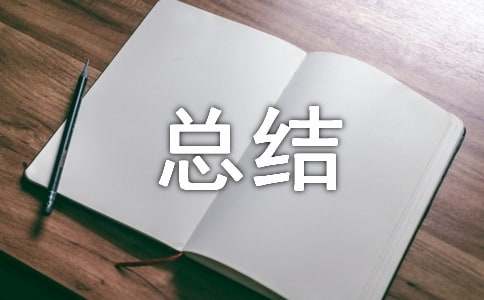the more用法总结大全
总结是事后对某一时期、某一项目或某些工作进行回顾和分析,从而做出带有规律性的结论,它有助于我们寻找工作和事物发展的规律,从而掌握并运用这些规律,因此好好准备一份总结吧。你想知道总结怎么写吗?以下是小编帮大家整理的the more用法总结,希望能够帮助到大家。

the more用法总结 篇1
"the more..., the more..."句型的用法归纳如下
1."the more..., the more..."句型常表示"越……就越……",是一个复合句,其中前面的句子是状语从句,后面的句子是主句。the用在形容词或副词的比较级前,more代表形容词或副词的比较级。例如:
① The more he gets, the more he wants. 他越来越贪。
② The more she lea
rns, the more she wants to learn. 她越学越想学。
2."the more..., the more..."句型,主从句的时态常用一般现在时或一般过去时。例如:
①The higher the ground is, the thinner air becomes. 离地面越高,空气就越稀薄。
②The harder he worked, the more he got. 他工作越努力,得到的就越多。
3. 若主句的谓语动词用一般将来时,从句的谓语动词要用一般现在时表示将来。例如:
①The harder you work, the greater progress you will make. 你越用功,进步就越大。
②The longer the war lasts, the more the people there will suffer. 战争持续得越久,那里的人们受难就越多。
4. 若比较级作表语且不位于句首时,可以不用the。例如:
When we are more in danger, we should be braver. 越是危险,我们越应勇敢。
5. 在这种句型中,主句在程度上随着从句变化而变化,常把被强调部分提前。例如:
The faster you run, the better it will be. 你跑得越快越好。
6. 这种句型的特点是前后都可以有所省略。特别是谚语、俗语,只要意义明确,越简练越好。例如:
① The more , the better.多多益善。
② The sooner, the better. 越早越好。
7. 这种句型中的比较部分通常是状语、宾语、表语,也可以是主语。例如:
① The more English you practise, the better your English is.你练习英语越多,你的`英语就越好。
② The busier he is, the happier he feels. 他越忙越高兴。
③ The more air there is inside the tyre, the greater pressure there is in it. 轮胎里空气越多,承受的压力就越大。
8. 若表示"越……越不……"时,常用"the more..., the less..."句型。例如:
The more she flatters me, the less I like her. 她越逢迎我,我越不喜欢她。
9. 若表示"越不……就越……"时,常用"the less..., the more..."句型。例如:
The less he worried, the better he worked. 他越不烦恼,工作就干得越好。
more的用法大全
more的用法1:more用作副词是many和much的比较级,可构成多数两个或两个以上音节的形容词或副词的比较级,但通常不可构成表示方位、绝对或极限意义、时间概念、事物的性质或结构成分、顺序或含明确数学概念、几何形状或以or结尾等的形容词或副词的比较级。通常也不可与形容词或副词的比较级形式连用。
more的用法2:more在以下情况可以用于单音节形容词前:①more后接than结构作表语表示同一人或事物的两种特性对比; ②后接than结构作宾语补足语或表语,表示前后两种情况对比; ③作具有描写或强调意义的后置定语; ④以两个辅音字母结尾的单音节形容词; ⑤需要强调的形容词; ⑥与多音节形容词并列使用的形容词; ⑦fond, right等或由过去分词变来的形容词时,可用于单音节形容词之前; ⑧用在the more..., the more...结构中。
more的用法3:在表示两者中“较…一个”时, more前要加定冠词。
more的用法4:more可单独用作插入语,在含意上接近于what's more,也可在动词后单独使用。
more的用法5:more than结构后可接数词,表示在数量上“超过”某种程度,此时可接含有can的从句,表示否定; 也可接形容词、副词或动词,表示程度,意为“非常”; 还可接名词或动词等,意为“不只是”,此时,可用more than one在句中修饰主语,尽管从意义上看是复数内容,但句子的谓语动词应用单数形式,但如果以more than one直接充当主语,谓语动词可是单数,也可是复数; 如果“more+复数名词+than one”作主语时,谓语动词应用复数。
比较级more的用法
一、more 是 many, much 的比较级
He has more e-mails than I (have). 他的电子邮件比我多。
There is more water there than here. 那边的水比这里多。
Five is two more than three. 五比三大二。
The beauty of the place is more than I can describe. 这地方风景之美非我所能描绘。
二、注意 "much (或 many, a little, a few 或具体数字等) + more”的用法。这时 more 前面的不定数或具体数字表示比原有的多出的数量
We need much more help than you. 我们比你们需要多得多的帮助。
I have many more net friends than she (has). 我的网友比她多得多。
You had better stay here for a few more days. 你最好再住几天。(言外之意,你在这里已住了几天了。)
He wants to take a little more water. 他想再取一点水。
The sun will rise in an hour more. 太阳再隔一小时就将升起。
Could I take ten more? 我能再拿十个吗?(不能译为:我能拿十多个吗?原文已包含“我原先已拿了几个”的意思,只是说这句话时还想再拿十个。)
We hope to visit this software development center once more. 我们希望再次访问这个软件开发中心。
One more whistle, and the train will start. 再响一次汽笛,火车就要开了。
What more (或 What else) do you want? 你还要什么?
There is hardly any more. 差不多没有了。(原句直译为:几乎再没有任何什么了。)
三、名词 more 的用法
Do you need a little more of this milk? 这种奶你是否还需要一点?
四、“副词 more + 形容词或副词”构成比较级的用法
He treats this substance with the acid more carefully than before. 他比以前更小心地用酸来处理这种物质。
This problem is becoming more and more serious. 问题变得越来越严重。
the more用法总结 篇2
The more you practice, the better you can speak.
参考译文:你练习越多,你就能说得越好。
从句:the more you practice
主句:the better you can speak
主句随从句成比例发生变化。
The more expensive the salt is, the faster it can be sold.
参考译文:盐越昂贵,它可能卖的越快
从句:the more expensive the salt is
主句:the faster it can be sold
主句随从句成比例发生变化。
the +比较级(主语+谓语); the +比较级(主语+谓语)。引导比较状语从句
“the more…,the more…”的用法
【一】“the more…,the more…”句型为“the+形容词或副词比较级,the+比较级”结构,常表示“越……,就越……”,是一个复合句,其中前面的句子是状语从句,后面的句子是主句。
The more he gets,the more he wants.
他越来越贪(他得到的越多,就越想要)。
The more she learns, the more she wants to learn.
她越学就越想学。
【二】“the+比较级,the+比较级”句型主从句的时态常用一般现在时或一般过去时。
The higher the ground is, the thinner the air becomes.
离地面越高,空气就越稀薄。
The harder he worked, the more he got.
他工作越努力,得到的就越多。
【三】若主句的谓语动词用一般将来时,从句的谓语动词要用一般现在时表示将来。
The harder you work, the greater progress you will make.
你越用功,进步就越大。
The longer the war lasts, the more the people there will suffer.
战争持续越久,那里的人们受难就越多。
【四】在这种句型中,主句在程度上随着从句变化而变化,常把被强调的部分提前。
The faster you run, the better it will be.
你跑得越快越好。
【五】这种句型的特点是前后都可以有所省略,特别是谚语、俗语,只要意义明确,越简单越好。
The more, the better. 多多益善。
The sooner, the better. 越早越好。
【六】这种句型中的比较部分通常是状语、宾语、表语,也可以是主语。
The more English you practice, the better your English is.
你练习英语越多,你的英语就越好。
The busier he is, the happier he feels.
他越忙越高兴。
The more air there is inside the tyre, the greater the pressure there is in it.
轮胎里空气越多,里面的压力就越大。
【七】若表示“越……,越不……”,常用“the more…,the less…”句型。
The more she flatters me, the less I like her.
她越逢迎我,我越不喜欢她。
【八】若表示“越不……,就越……”,常用“the less…,the more…”句型。
The less he worried, the better he worked.
他越不烦恼,工作就干得越好。
【the more用法总结大全】相关文章:
2017年高考英语易错词汇no more than用法05-29
GMAT语法:逗号用法大全09-30
Java中Executor接口用法大全11-27
中考英语单词用法总结11-26
java中一些用法总结12-04
托福常用法律类阅读词汇总结11-15
php用法有哪些11-18
Photoshop的用法小结11-26
assert用法(C语言)11-24






